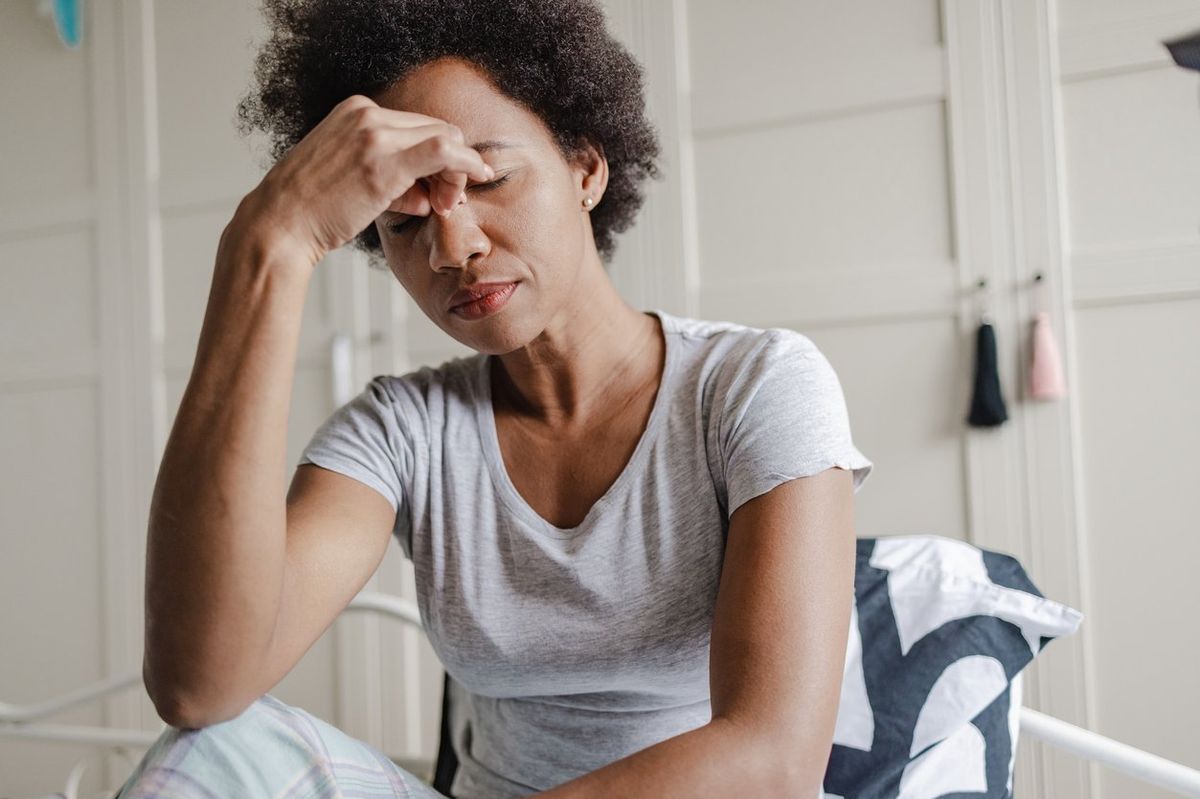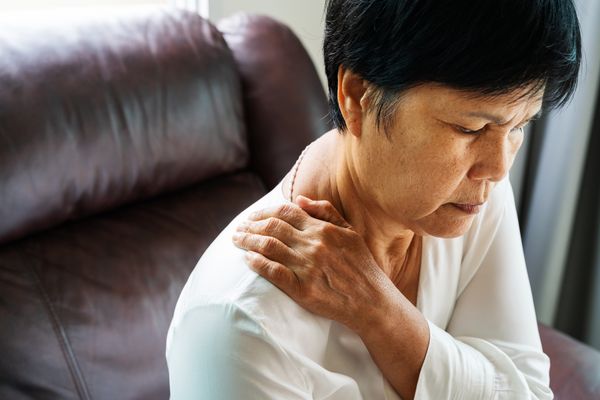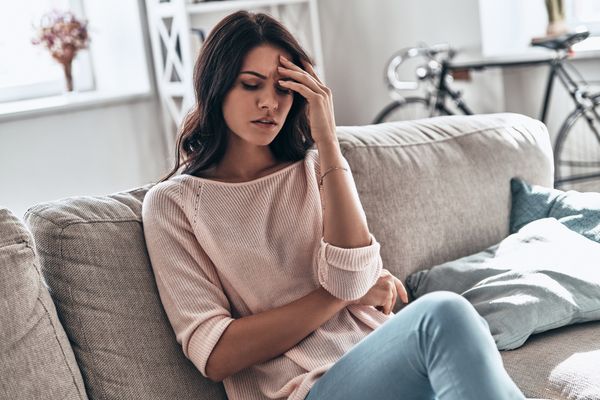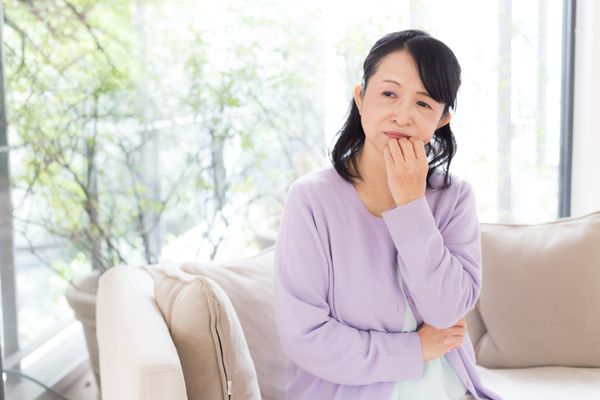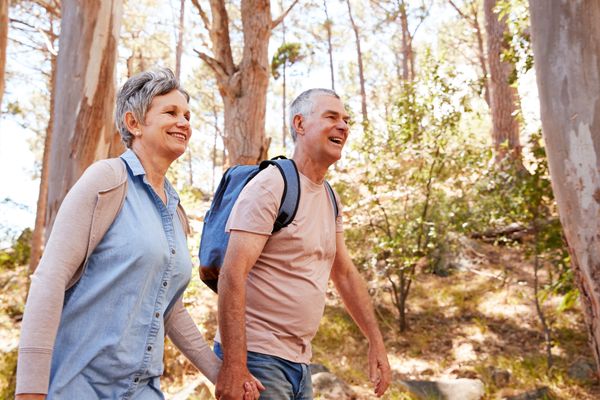April is Stress Awareness Month.
Mary Young, a certified mental health first-aid trainer in Georgia, lived life at full speed. She was an active woman who gave her all to her job and volunteer work at her church. Until one day, she couldn’t.
“Looking at my Facebook memories, I could see that I had many bouts of sickness in 2015 that I didn’t even notice at the time,” Young said. This coincided with Young’s increase in travel and overtime, which she was doing partly to prove herself to her new boss. At the end of the year, she became very sick with the flu, followed by a relapse of the flu in January, then shingles and, finally, a ministroke that was initially misdiagnosed as vertigo.
Young’s experience with illness during a stressful period isn’t unusual, and women are more likely to experience stress than men. According to Linda Baggett, Ph.D., CEO of Well Women Psychology in California, “There are a bunch of nuanced reasons. One, I think women are under incredible pressure and demand to be perfect. We have to be perfect moms with perfect bodies, perfect employees, have a perfect exercise routine and all that. It’s a standard that men are not held to. Certainly, men do have a lot of pressure in the work domain, but there isn’t as much pressure for the rest of it.”
In addition to that stress, Baggett said that many women struggle to say “no” and to set boundaries, which often leads to the third factor: having to work harder to be taken as seriously by their bosses, doctors, etc. “I think that adds an additional layer to the stress, and even more so for women with a marginalized identity, like being Black or disabled.”
Stress itself isn’t always a bad thing. Some stress can be good. For example, it can help you focus on tackling a difficult task, adjust to new situations or challenge yourself. But when stressors go beyond the normal or continue without a break, they can affect you not only emotionally but physically. And while not common, in some cases, the long-term effects of stress can kill you.
Stress can chip away at you
So, what can stress do to a woman’s body? While you may not experience the level of physical symptoms that Young did, stress can chip away at your health, causing many symptoms, such as:
- Headaches
- Chest pain
- Muscle tension and pain
- Fatigue
- Stomach upset
- Weight loss or weight gain
- Decreased sex drive
- Heart disease
- Delayed menstrual periods
“There is also difficulty sleeping, having a hard time turning off that scrolling marquee of the to-do list,” Baggett said. “And you’re way more likely to get sick if you’re stressed because stress really taxes your immune system.”
Stress can also lead to anxiety. Stress is something that has an outside cause, like losing a job, being late for an appointment or seeing something disturbing. Anxiety, on the other hand, is the body’s internal reaction to stress. Many of the tips to help manage stress also help reduce mild anxiety, but women who experience more intense anxiety may need professional help to reduce that anxiety.
Read “I’m Grateful for the Anxiety That Left Me Gasping for Air” >>
Managing stress, getting it under control
Because stress is so common, women need to learn how to identify and manage it before it gets out of control. Young said that while that might seem easier said than done, the important thing is to start small. “I had to admit I couldn’t do everything. I cannot tell you how hard that was,” she said.
Young had been traveling extensively for work before she had to take a break. After she thought she’d recovered enough, she decided to try again. “It was only once a month this time, starting in July, but by August, I told my boss that I couldn’t do it. Any reserves I’d built up were lost in that three-day trip.” Young also became better at saying no and canceling after saying yes when she realized her yes wasn’t a good idea.
After switching her routine to allow for better sleep and healthier eating, Young also found that adding a bit of exercise — nothing radical, she pointed out — helped, too. “In the last couple of years, I have gotten better about taking a break and going for a walk in my backyard,” she said. “I’ll walk just five or six laps in the backyard. It does wonders, just being outside in the sunshine.”
Pause and slow down
Young may not have realized it, but her daily backyard walks, saying no and sleeping more were all part of the pause-and-slow-down approach to managing stress. “Stress makes our brain get carried away with thoughts,” Baggett explained. “First things first. Take a few deep breaths, slow down and ask yourself, OK, what am I feeling? What is pressing me? What do I need at this moment?” This allows you to determine whether you need to take a break before proceeding, need help to complete a task or need to stop moving ahead.
Baggett said to do what works for you. It could be having a big cry, going for a long walk or just getting outside. What’s very important, though, is not saying you don’t have time for this. “You can’t not have the time to do it,” Baggett said. “If your stress mounts to a certain point, you’re going to get totally overwhelmed and get sick or shut down in some way.”
April is Stress Awareness Month, so it’s a great time to assess and reflect on stress in your life. The goal is to help people understand the importance of what stress can do to the body and how self-care can help people manage stress before it gets out of control. It helps to slow down wherever possible.
“Slowly but surely, you can change your approach to life and manage your stress,” Young said. “At rehab, they had to keep telling me that SLOW isn’t spelled FAST.”

